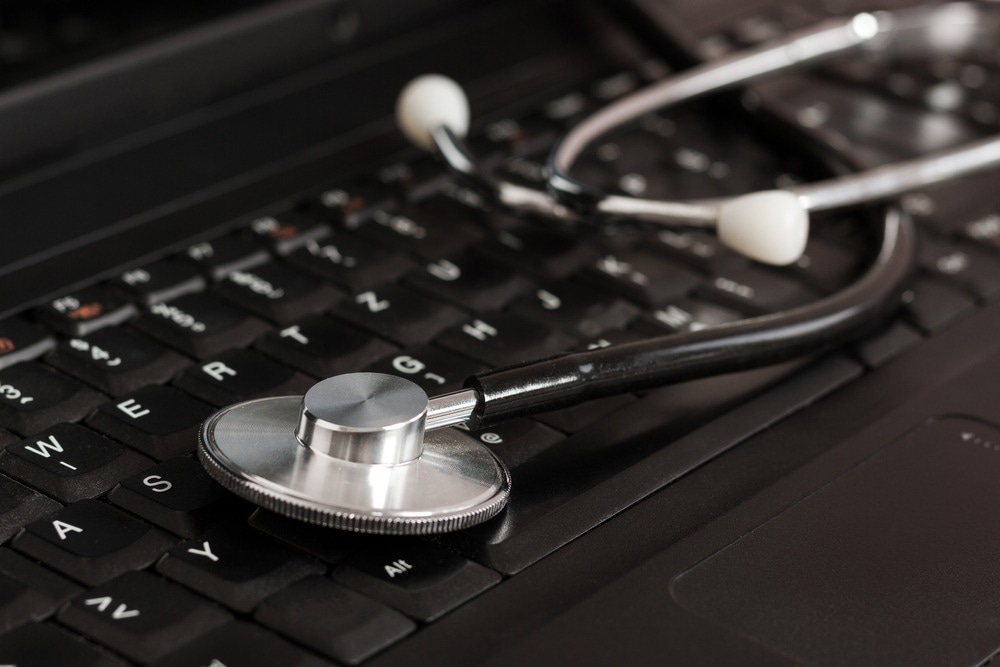Introduction
Importance
Benefits
Patient participation
Conclusion
References
Further reading
Introduction
Clinical informatics (CI) is a new field of information technology, also called health informatics. It deals with the use of technology and data analysis tools to come up with better patient care.
According to the American Medical Informatics, CI refers to "the application of informatics and information technology to deliver healthcare services." A more detailed definition by the Accreditation Council for Graduate Medical Education (ACGME) describes it as: "The subspecialty of all medical specialties that transforms health care by analyzing, designing, implementing, and evaluating information and communication systems to improve patient care, enhance access to care, advance individual and population health outcomes, and strengthen the clinician-patient relationship."

Image Credit: Ivan Anta/Shutterstock.com
CI uses patient information from electronic health records (EHR), medical imaging, bed management systems, and radiofrequency identification (RFID) to track medical equipment and patients who need close monitoring or must be within easy access of their doctors, as well as secure portals for the exchange of health information. Such data is stored, processed, and distributed to all those involved in framing the patient treatment plan.
Importance
CI specialists assess how effectively such information systems operate, how the data is used, and how things can be improved. They use computer science, patient care, healthcare management, and information science knowledge to make the data flow in a more streamlined fashion, improve health outcomes, help doctors and other clinical staff relate better to their patients, and vice versa.
To do this, fundamental requirements must be met:
- Patient care needs must be defined
- Medical and paramedical staff needs must be clarified
- The clinical workflow must be laid out clearly, and improved where necessary
The resulting CI systems are adapted to the local situation, applicable across multiple disciplines, and are constantly capable of being upgraded according to changing needs. Interoperability is essential so that patient care is improved, as well as making data available for public health and clinical research.
So is the ability to search patient information, the keystone of evidence-based medicine (EBM) in individual cases. Moreover, telemedicine and telehealth depend upon CI.
Benefits
Some benefits of optimized CI include better overall healthcare management, the superior quality of care, higher productivity due to more focused and streamlined workflows, higher administrative efficiency, fewer medical errors, better communication with the patient, and lower costs due to all of the above.
Record keeping
The use of EHR has transformed patient record keeping and thus allowed for better management of such records. Such records include information gleaned from the patient or the family, as well as that obtained from the tests used and the physicians' medical knowledge and other resources.
Sharing Information
An important application of CI is health information exchange HIE, which is the "exchange of health information for patient care across traditional business boundaries in health care."
The ability to securely exchange health information means that all data relating to a given patient's management can be shared freely and instantly between the patient and the various professionals involved in the patient's care. This allows them to make coordinated decisions and improves the quality of care.
Patients can also share their own information with those close to them or even with other patients while updating their medical care team on their current health status. Direct sharing of information with patients could enhance health literacy as well.
This is a practical advantage that contributes to medical research and improves the way healthcare is delivered. For instance, drugs that have previously produced adverse reactions can be avoided by all the experts involved in the patient's care, reducing medical errors and promoting patient wellbeing.

Image Credit: bluesroad/Shutterstock.com
At the same time, all information is not equal. A large amount of unreliable or irrelevant information, or outright misinformation, is shared among patients, boosting anxiety and/or lowering confidence in their healthcare providers. CI can help direct both patients and providers to sources that disseminate information of high quality, thus promoting patient-centered care.
Avoiding errors
Medical errors cause almost 100,000 deaths a year, according to a series of reports from the Institute of Medicine (IOM). Such errors have been estimated to occur in up to a fifth of pediatric oncology visits and about one in fifteen adult oncology visits, with potential harm being possible in almost 60% of them. Adverse drug events (ADEs) have been documented at approximately 7 per 100 hospitalized patients.
Several researchers have shown that missing information is responsible for suboptimal clinical decisions and care.
Such errors are costly and lead to around $40 billion in remedial care and compensation annually in the USA alone. The use of CI brings down the rate of error. Computerized provider order entry (CPOE) is a single practice that can reduce unnecessary hospital stay, laboratory testing, and total treatment charges, as well as encourage the prescribing of equally effective cheaper medications in place of costly ones.
For instance, using EHR avoids the need to decipher illegible scrawls, errors arising from wrongly calculated medicine dosages, and errors in drug administration. Again, a good reporting system allows staff errors to be brought to the notice of the authorities. Automated calculation systems for patient dosing could avoid errors in this area.
Efficiency
Another source of cost reduction is eliminating redundant and manual tasks, such as collecting and entering blood test results. This ensures that laboratory results can be seen and acted upon in a timely fashion, which reduces the chances for malpractice claims.
Patient participation
Patients can access their health records for themselves whenever they want, allowing them to be in charge of their own health, understand their medical condition and monitor their symptoms and medications. They can talk to their healthcare providers and participate in decision-making, while the systematic tracking of their health promotes a better route to getting the care they need.
What is Health Informatics?
Patient access to their own records speeds up their progress in obtaining healthcare, as exemplified by the CHESS program, an initiative of the Agency of Healthcare Research and Quality for patients with Alzheimer's disease (AD) or AIDS.
Conclusion
The aim of CI is to optimize information storage and retrieval so that clinicians can share relevant information more safely and effectively and provide better care. The AMA outlined features that are key to improved usability, such as modularity, the ability to configure the product to the local requirements, better data liquidity, a lower cognitive workload, higher engagement with the patient via digital and mobile interfaces, and encouraging user input to improve the design of EHRs, for instance. This will help provide better overall health outcomes, which is the underlying reason for the importance of this field.
References
Further Reading
Last Updated: Dec 22, 2022